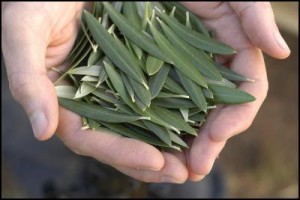
More evidence that low-calorie sweeteners are bad for your health
Studies show that artificial sweeteners can raise the risk of hypertension, metabolic syndrome, type 2 diabetes and heart disease, including stroke.

Natural Health News — There’s more to olives than just oil, as a recent study shows that antioxidants in olive leaf extract can improve insulin sensitivity in people at risk of developing metabolic syndrome.
Olive leaf and fruit extracts contain two main polyphenols: oleuropein and hydroxytyrosol, which have been shown to help maintain healthy blood pressure, healthy blood vessels and improved blood clotting.
This current study suggests the polyphenols in olive oil may help maintain healthy insulin levels, which can in turn help protect against metabolic syndrome.
Metabolic syndrome is a group of risk factors including elevated blood sugar and blood pressure, insulin resistance or glucose intolerance, decreased high density lipoprotein (HDL), or ‘healthy’, cholesterol with elevated triglycerides and abdominal obesity, which increases the risk of heart disease and diabetes. Metabolic syndrome is also associated with chronic low-grade inflammation.
Powerful polyphenols
For their small 12-week study the New Zealand researcher gave 46 overweight (BMI 26-30 kg/m2) people aged 41 to 51 either four capsules of a standardised olive leaf extract containing 51.1 mg oleuropein and 9.7 mg hydroxytyrosol daily or placebo.
After 6 weeks people in each group had what is called a wash out period, where they were not taking any supplement and then switched to the opposite treatment for another 6 weeks.
The researchers assessed insulin sensitivity, as well as levels of glucose, insulin, lipids and pro-inflammatory cytokines. They also evaluated blood pressure, body composition and what is known as carotid intima-media thickness, a measurement of atherosclerosis.
Significantly better insulin sensitivity
What they found was that, compared to the placebo, olive leaf extract supplementation improved insulin sensitivity by 15% and pancreatic beta-cell responsiveness (cells that store and release insulin) by 28%.
The olive leaf extract also increased levels of the cytokine interleukin-6 (which has an anti-inflammatory action) and the insulin-like growth factor-binding proteins IGFBP-1 and IGFBP-2, which help improve insulin sensitivity.
They did not find any effect of olive leaf extract on other measurements they took including pro-inflammatory substances such as the cytokines interleukin-8 and tumour necrosis factor-alpha or C-reactive protein, nor in blood lipids, liver function, blood pressure, body composition or carotid intima-media thickness.
The study concluded, “Supplementation with olive leaf polyphenols for 12 weeks significantly improved insulin sensitivity and pancreatic beta-cell secretory capacity in overweight middle-aged men at risk of developing the metabolic syndrome.”
The study was funded, and the extract used prepared by the company Comvita, which manufactures health products including olive leaf extract.
A useful anti-inflammatory
A 2009 review of the pharmacology and uses of olive leaf extract found evidence for its use as an anti-inflammatory and antimicrobial as well as being useful in normalising insulin levels.
Prevision evidence from animal studies has also shown that olive leaf extract can reverse the chronic inflammation and oxidative stress that induces the cardiovascular, hepatic, and metabolic symptoms in this rat model of diet-induced obesity and diabetes without changing blood pressure.
In a 2008 human study taking 1,000 mg of olive leaf extract per day for 8 weeks resulted in a significant drop blood pressure overall, and lowered levels of LDL or ‘unhealthy’ cholesterol.

Please subscribe me to your newsletter mailing list. I have read the
privacy statement